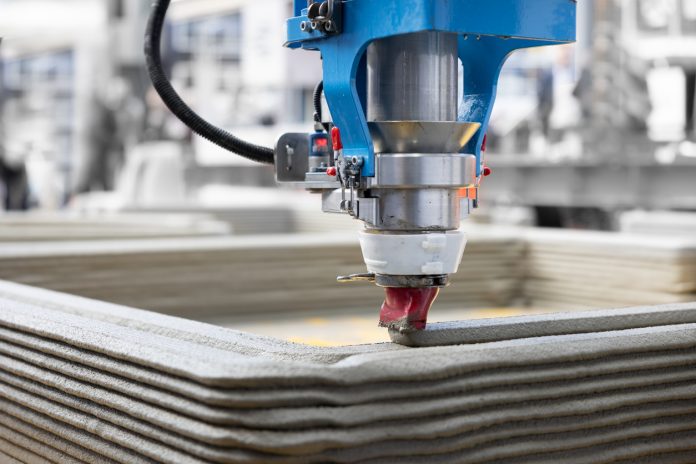New laser-based sensing technology has been revealed and could change the quality assessment of critical metallic components produced through additive manufacturing, commonly known as 3D printing
The research team, led by Professor Anthony Mulholland from the School of Engineering Maths and Technology, introduced a new formula aimed at optimising the design and deployment of ultrasonic laser arrays.
Additive manufacturing/ 3D printing
These sensors offer a non-contact method of assessing the integrity of additively manufactured materials, opening doors to enhanced safety and efficiency across various industries.
Traditional additive manufacturing faces challenges in meeting strict safety and quality standards due to variability in component microstructure and geometry.
Professor Mulholland’s team has used mathematical modelling to predict how ultrasonic waves interact with layered metallic materials, helping for more precise sensor design tailored to the unique properties of each component.
Putting this into practical solutions
By integrating these advanced sensors into the manufacturing process, industries can gain insights into component quality, optimising production efficiency and ensuring mechanical integrity even in safety-critical sectors like aerospace.
The team’s research isn’t confined to theoretical domains. Collaborating with industry partners, they aim to translate these findings into practical solutions.
Laser-based ultrasonic arrays will soon be deployed by robotic arms within controlled manufacturing environments, generating high-resolution tomographic images of component interiors.
The impact on the manufacturing industry
These images will provide detailed assessments of component quality without the need for harmful testing, a shift for quality assurance in 3D-printed components.
The ultimate goal is to accelerate the adoption of additive manufacturing by delivering reliable quality assurance tools that boost confidence in product safety and performance.
As this research continues to take shape, expectations are high for the transformative impact it will have on the manufacturing industry. With the promise of enhanced quality, streamlined processes, and newfound design freedoms, laser-based ultrasonic sensors may mark a new era in additive manufacturing quality assurance.











